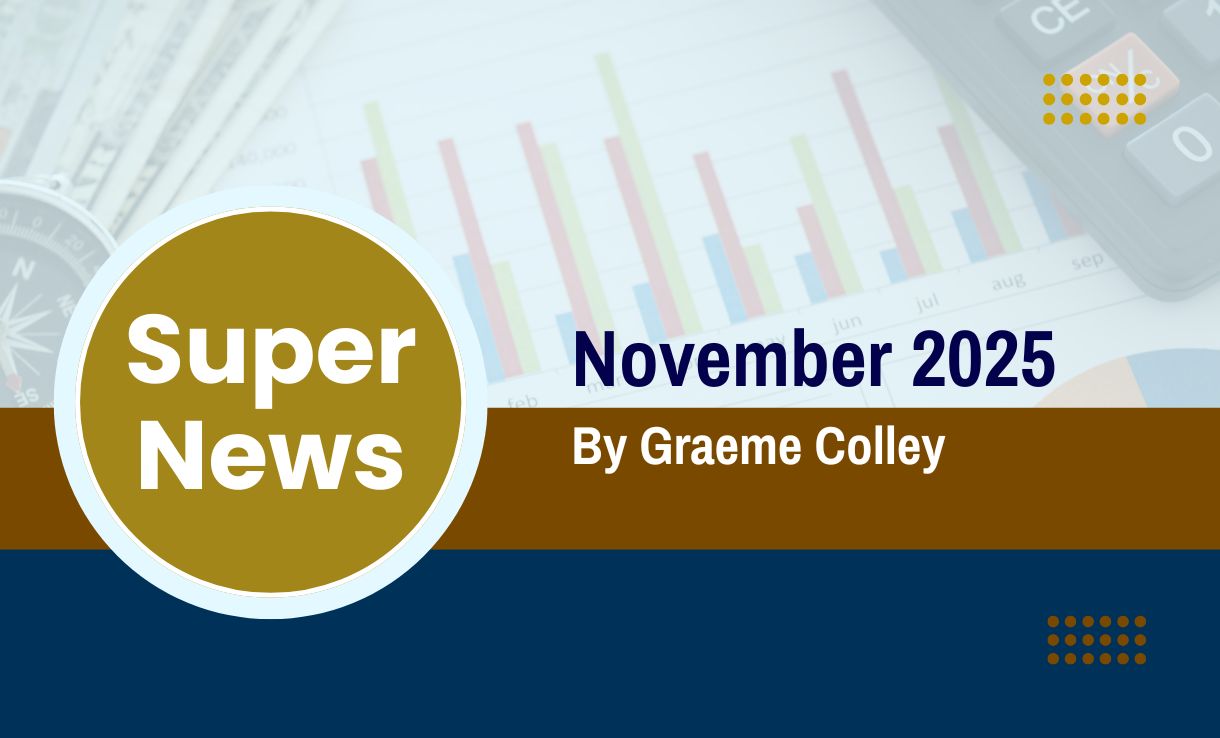Graeme’s Super News – November Edition
Read the latest updates from Graeme Colley, a respected educator, policy advisor, and technical expert with over 30 years’ experience in taxation and superannuation.
Welcome to some of this month’s roundup of key developments with SMSFs. From ATO compliance initiatives to ASIC audit reviews, make sure you’re up to date.
ASIC Flags Auditor Independence Breaches
ASIC recently released Report 817 – Building trust: Auditor compliance with independence and conflict of interest obligations. The report followed ASIC enforcement action taken against several auditors and firms identified as not meeting the independence and conflict of interest requirements.
Nearly one-third of the 48 auditors reviewed breached the mandatory independence requirements. Nine auditors failed to meet rotation requirements for 14 listed clients, and five held prohibited relationships under the Corporations Act. These breaches were found across all sizes of audit firms reviewed.
The source of the breaches was due to poor systems, lack of policies, carelessness, and inadequate quality control. ASIC considered that many auditors adopted a narrow, “tick-box” approach to compliance and failed to consider threats to independence or changing circumstances during audits. Some relied on inappropriate safeguards and did not document how they assessed independence risks.
Examples of threats included excessive non-audit fees—sometimes five times higher than audit fees—and long-standing relationships between auditors and clients, some lasting up to 36 years. ASIC emphasised that independence is fundamental to audit quality and encouraged all auditors to strengthen their practices and policies.
ATO Cracks Down on Late SMSF Lodgements
The ATO is taking a tougher stance on late lodgement of SMSF annual returns. About 10% of 2022/23 returns remain outstanding, and similar figures are expected for 2024. The ATO’s experience is that late lodgement often signals illegal early access or other compliance issues.
Consequences for late lodgement include removal of the fund from Super Fund Lookup, which restricts contributions and rollovers, and potentially may result in trustee disqualification.
Continued non-lodgement may trigger harsher penalties. The ATO advises trustees to respond promptly to any ATO correspondence and avoid ignoring compliance letters.
Trustee Declaration Requirements Clarified
Since 2007, SMSF trustees have been required to complete the ATO trustee declaration within 21 days of appointment and retain it for at least 10 years. Auditors are required to sight the original declaration and keep a copy in their audit file, along with annual confirmations that trustees continue to retain it.
However, many auditors only review copies and request new declarations when originals are lost. The ATO has clarified that if the original cannot be sighted, a new declaration must be signed. A once-off breach can be rectified, but repeated failures require an Auditor Contravention Report (ACR).
Auditors should not be lodging ACRs annually for the same fund due to missing originals if the breach has been rectified.
Market Valuation Breaches Increasing
Breaches of regulation 8.02B of the SIS Regulations, which requires SMSF assets to be valued at market value, accounted for 12% of all reported breaches in 2024–25. Trustees must ensure that valuations for each income year are accurate, in line with the ATO’s valuation guidelines and provide supporting evidence to auditors.
The ATO is using data analytics to identify funds which have reported unchanged asset values year after year, raising concerns about compliance. Failure to meet valuation requirements can result in additional tax liabilities and administrative penalties.
Auditors must assess whether the valuation basis is appropriate and document their findings. Trustees are reminded to provide objective, supportable evidence, including all documents requested by auditors.
SMSFs Failing to Respond to Release Authorities
The ATO has seen a rise in SMSFs failing to respond correctly to release authorities—documents authorising the release of funds to pay liabilities such as excess contributions, Division 293 tax or possibly Division 296 tax in future. Trustees must release the requested amount and submit a release authority statement within 10 business days of receipt.
Non-compliance can lead to significant penalties. Trustees should regularly check secure mail channels, set reminders, and use SMSF software to track deadlines. Working closely with administrators or tax agents can help ensure timely and accurate responses.
Keeping fund contact details, including electronic service addresses, up to date is essential for receiving important correspondence.
Surge in Compassionate Release of Super
Applications for compassionate release of super (CRS) have surged, particularly for dental treatments. Requests rose from 56,400 in 2021–22 to 90,700 in 2024–25, with costs reaching $104.4 million. Most applicants were aged 34 to 60.
The ATO, in collaboration with AHPRA, is concerned about practitioners supporting inappropriate access, especially for cosmetic procedures. Release on compassionate grounds is only available in limited circumstances, such as treating acute pain or life-threatening conditions, and requires certification from two practitioners.
Practitioners have been warned against providing financial advice without a licence and must ensure medical reports are accurate. New guidance from AHPRA and the Dental and Medical Boards emphasises that treatments should only be certified if necessary.
Writing Off SMSF Loans Requires Documentation
Writing off loans in SMSFs is being scrutinised by the ATO for breaches of the sole purpose test. Trustees need to demonstrate reasonable efforts to recover funds, including legal advice or evidence of insolvency. Without proper documentation, the ATO may see the transaction as illegal early access.
SMSFs generally cannot claim bad debt deductions unless they are in the business of lending. A capital loss may be claimed if the loan was made with a reasonable expectation of repayment.
If a member illegally accesses super, the funds cannot be returned, and any repayment to the fund will be treated as a new contribution. Trustees may face section 65 penalties, civil and criminal sanctions, disqualification, and fund non-compliance. Early access also breaches preservation standards, making the amount assessable income for the member.
Thank you for reading this months’ update.
If you are looking for more SMSF insights, you can watch Graeme’s latest webinar on demand here.
 |
|||
 |
 |
 |
|
